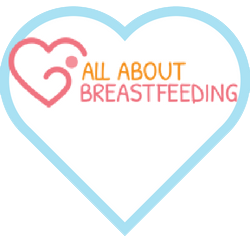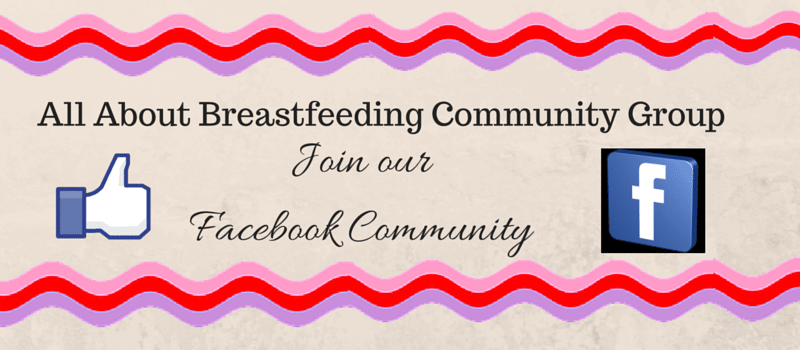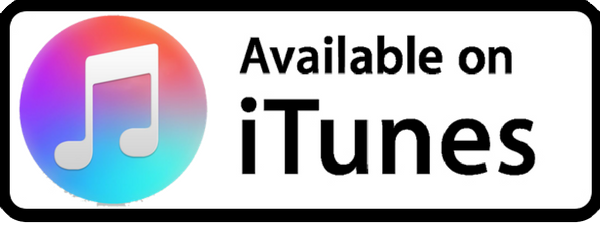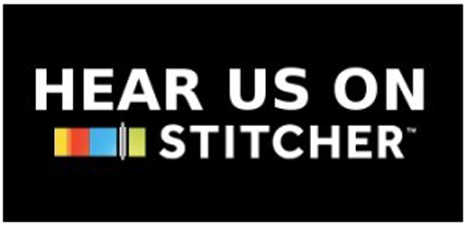Hannah Croft IBCLC
I think one of the really important things is Talking about realistic expectations of about how your newborn baby is going to behave and kind of recognizing that your newborn baby is still going to think they are a part of you and your body. So, if they don’t want to be separated from you, it is your babies natural instincts to keep them alive and they know that you are going to keep them safe and secure. Culturally, we have these expectations that you are going to feed the baby and then put them down and then you have 3 hours until you feed them again. But we know and new parents will very soon find out that there is a lot more to it than that. Breastfeeding is so much more than just giving the baby food. Breastfeeding can be about bonding and connecting and holding your baby and having that skin to skin with them that makes it more than just food.
Her Bio:
Hannah trained and worked as a Norland Nanny before having her own babies, who are now nearly 8 and 4, when she realized the importance of breastfeeding support. When her daughter was 10 months and after her own struggles with breastfeeding, she trained as a Breastfeeding Peer Supporter before volunteering for 4 years. Hannah then became accredited as an LLL Leader. While serving her community she accumulated the hours she needed to sit the exam to become an IBCLC.
Hannah studied alongside being a stay at home mum, finding courses online to complete to be eligible. She sat the exam last October, and after an agonizing 3 months, she was notified that she passed in December. She has now been qualified for a year. Hannah has her own private practice where she offers support to families as they navigate breastfeeding. She also runs free antenatal sessions to help prepare and educate parents, and professionals. She also works for a Weekly community grant funded group as an IBCLC, as well as doing some NHS shifts too. I Hannah says that t’s been an amazing and exciting year and she feels so fortunate to have found something that makes her heart sing so much! “I truly love my job.”
Her Background:
She is the older of two kids, with a younger brother. She had a really nice upbringing and a wonderful childhood. Her parents always told her that she could do anything that she wanted.
Hannah never really had a strong pull to begin one career over the other. The only thing that she knew was that she really wanted to have children. Having had some breastfeeding challenges helps her remember the difficulties when she is working with a new mom.
Was she breastfed?
Yes she was. Her mom always spoke very openly and positively about breastfeeding her and her brother. This is wonderful to hear because the majority of my guests were not breastfed. Her mother was a health visitor and a pediatric nurse. She has had great conversations with her mother about breastfeeding, what she was taught and particularly about advice they have given to moms. She has learned that the information her mom gave new mothers was not always evidence based. This was often not part of her training.
Her breastfeeding experience with her 2 children?
Her daughter Isabelle will be 8 in January. She was quite overdue and Hannah endured a difficult induction. She did feel breastfeeding was going well, however, At 2 weeks old, her health visitor said her weight was not where it needed to be. She was advised to begin giving her baby formula. Hannah feels she deliver the news with a lack of sensitivity. She was quite heartbroken. This has had such a lasting impact on her that she still remembers where she was sitting.
She contacted a lactation consultant where she worked. She is having good output and she is a happy content baby and this LC said to come and see her. She observed a breastfeed and weighed her and she said she felt like she was doing okay and suggested she keep breastfeeding without the need to supplement. Her daughter continued to breastfeed until she was 3 years old. Hannah is very grateful for her friend the LC who took the time to listen to her , observe a feeding and assure Hannah that she felt breastfeeding was going fine. She suggested that Hannah continue to breastfeed and it was her expert opinion that she did not need to supplement breastfeeding with formula.
Hannah tells us that this kind of interaction with the insensitive health visitor can disrupt breastfeeding for the newborn, as well as for any future babies if they feel like insecure, have fears and/or feel like they failed. This also has an impact on how a woman feels about being a mother and often leads to a lack of confidence in their mothering.
Hannah had issues with her son with weight gain. He had a posterior tongue tie which was taken care of but he still struggled to gain weight. By this time, she had a pediatrician who was very supportive of breastfeeding and suggested that she keep breastfeeding. Looking back at his photos, she does see that he was scrawny and acknowledges that knowing what she has learned along the way, she may have made different decisions. We both acknowledge that “hindsight is 20-20.”
Tell us about your private practice as an IBCLC?
This work needs to come from a place of passion because the work is hard and it can be emotional and it can be tiring. The biggest gap we have is the first 5 days is because this is the time period where we have the largest drop off in the breastfeeding rates. They are undermined, they doubt themselves, they have breastfeeding challenges and a lack of trust in breastfeeding.
NHS: Once you are discharged from the hospital, a midwife will come and see you in the next 1-2 days. They may ask about breastfeedings. This is not always the best because midwives are not required to take breastfeeding education in the UK. You may get lucky and have a visit with a midwife who is particuarly motivated and learned more than the basics of breastfeeding. However, if you don’t, you might not get the best of breastfeeding information and help.
When a healthcare worker, who only has the basics of breastfeeding education, is in a position to help a mom with breastfeeding, may have the knowledge, but lacks the time to spend with moms. As breastfeeding specialist what we do, is give them time. We listen to their birth story, any breastfeeding challenges they have, answering basics questions and give them our time, along with breastfeeding education. IBCLCs help with position and support, help moms make adjustments so breastfeeding can be more comfortable and a big part of our job is to just support moms even when breastfeeding is going well.
Hannah feels that it is important to have a breastfeeding class that is separate than a childbirth or infant care class.
The NHS runs classes that covers a lot of information in a very short period of time. The focus is on the birth, which is very, very important, however, it lacks in breastfeeding education.
What are 2 of the most common reasons why moms request breastfeeding help from you?
Baby not latch is a very common reason to request help. Breastfeeding is hurting is another common reason to request help. What they do in between requesting help and getting the help has a lot to do with who has been helping moms. Sometimes they go to formula while waiting or instead of getting help. Hannah knows the importance of the milk supply So, in her antenatal sessions, She speaks about protecting the milk supply while they are waiting to get things sorted out.
Sadly, she sees a lot of families who request help but start beginning formula while waiting to get the help. This is because the health care workers in the hospital have not explained the importance of removing the milk. Hannah finds that sometimes she has to work with moms to build their supply before they can work on breastfeeding.
She loves to talk about what is happening already that tells you your body is preparing for breastfeeding. She talks about how the nipples and areolas get darker, your Montgomery Glands secrete fluid that smells like amniotic fluid and how the dark tissue and smells attract babies attention and leads them to come to the breast. All of these amazing things that you don’t routinely know unless someone tells you. It helps parents to have an appreciation for what the moms body is already doing to prepare for breastfeeding.
What have I done?
She also covers realistic expectations about how your newborn baby is going to behave. They are going to spend much of their time wanting to be attached to you because this is what their experience has been in utero. So, if they don’t want to be separated or put down, to help parents understand why.
Hannah really tries to help parents understand what life is like for their baby as they have moved from the womb to moms arms and how this must feel like for their baby. She finds it helpful to take time to acknowledge that once you have had a baby, that life is never going to be the same. Taking time to acknowledge that having a baby does change your life forever. Discussing the fact that once your baby is born, it is okay to have a whole mix of emotions. Some of them positive and some negative and some scary and all this is a normal part of motherhood.
A day in the life of Hannah as an IBCLC.
She has some home visits each week. She has a drop in group for moms who are breastfeeding. She also meets with moms at a local childrens center and offers breastfeeding education.
Pearls of wisdom:
It is okay to not be loving every moment. It is not a reflection as your role as a parent.
It will be okay. This will be okay.
Prepare ahead of time for where your breastfeeding resources and support groups are in your area before you give birth. It can be too difficult to first start searching for help after birth and you are in the thick of experiencing breastfeeding problems.
Contact Information:
email:
info@hannahcroft-ibclc.co.uk
instagram.com/Hannahcroftibclc
https://www.facebook.com/pg/HannahCroftIBCLC/
www.Hannahcroft-ibclc.co.uk
Your Online Breastfeeding Class
Learn how to breastfeed – Be comfortable. Be confident.
The learning continues well beyond the average breastfeeding basics class that is 60-90 minutes. In this class, we have over 15 hours of audio lessons, combined with many hours of videos to help support what you are learning. We cover breastfeeding and medication safety, what to do if your baby does not latch on, common breastfeeding challenges, tongue tie, premature babies, building a good supply, returning to work and pumping. Take a look at the list below and follow the link to the class page so you can see more specifics of what is covered. I want to ensure that we got you covered and that you have great support well beyond the newborn days.
- Using your pregnancy time to prepare for breastfeeding
- Tips on how to prepare your home for a newborn
- Specific details about the first 24 hours after birth.
- Exactly what to expect the first two weeks after birth
- What can you do if your baby is not latching on
- Common and not so common breastfeeding challenges
- What you can expect over the next few months
- Returning to work as a breastfeeding/pumping mom
- Pumping and storing your milk
- When to begin pumping and building your freezer stash
- How to make a smooth transition to postpartum life
- Lessons dedicated to partners and breastfeeding knowledge.
- Breastfeeding and the 1 year old
- Breastfeeding the toddler and beyond
- Tandem nursing
- Breastfeeding through a pregnancy
- Medication and mother’s milk
- Weaning
Once you register for the class, you have immediate access to:
- Audio Lessons
- Videos
- Educational handouts
- Helpful checklists
- Our “members only” group
- Weekly group LIVE Q&A sessions
Gain confidence in breastfeeding.
Expert advice from Lori J. Isenstadt, IBCLC who has over 25 years of experience in maternal health and lactation. I will help you navigate the ins and outs of breastfeeding.
Listen anywhere and anytime. Imagine not having to sit in a classroom or stare at a screen. You can learn all about breastfeeding while going for a walk, driving to work or running errands, traveling on a plane, train or bus. Because you can download the audios, learning is easy and convenient. Get ready to learn anytime whenever it’s convenient for you and your partner. You can be cooking dinner together and listening to the class. Perhaps relaxing together in the evening in your comfy clothes. You can learn together. Easy access to all class materials. Your class never expires. You’ll be able to listen and download the materials at your convenience.
You are not alone!
Once you are a student in the breastfeeding class, you have regular access to ongoing support for the whole time you are breastfeeding. You can have your questions answered by Lori J. Isenstadt, IBCLC, in our private group as well as our weekly live Q & A sessions. Just check out the Bonuses below to see how I provide you with ongoing support..
Exclusive Bonus #1
Immediate access to a private group for class students only. I will be answering your questions 5 days a week.
Exclusive Bonus #2
Invitation to join our weekly Q & A session with Lori and other students.
Exclusive Bonus #3
Need additional help? *25% discount off a private consult – for students only.
*If you are in the Phoenix metro area. use this link to schedule your Office or Home lactation consult.
*If you are out of the area, use this link to schedule a Skype call
Do you have a question about the class before you purchase? Send it to – aabreastfeeding@hotmail.com
 Register for the Breastfeeding class
Register for the Breastfeeding class
http://www.aabreastfeeding.com/audioclass
Additional ways to connect with me:
Like us on Facebook HERE:
http://bit.ly/2dNPlsC
Follow us on Twitter HERE:
@breastfeedingaz
http://bit.ly/2BfEIJ2
Follow us on Pinterest HERE:
https://www.pinterest.com/lorijisenstadt
Subscribe on iTunes the All About Breastfeeding show HERE:
https://apple.co/2FJGwsV
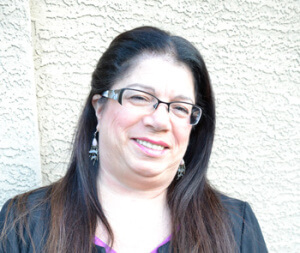 Lori Jill Isenstadt, IBCLC is a huge breastfeeding supporter. She has spent much of her adult life working in the maternal health field. Once she became turned on to birth and became a childbirth educator, there was no stopping her love of working with families during their childbearing years. Lori became a Birth doula and a Postpartum doula and soon became a lactation consultant. She has been helping moms and babies with breastfeeding for over 25 years. Lori founded her private practice, All About Breastfeeding where she meets with moms one on one to help solve their breastfeeding challenges. She is an international speaker, book author and the host of the popular itunes podcast, All About Breastfeeding, the place where the girls hang out. You can reach Lori by email at: aabreastfeeding@hotmail.com or contact her via her website: allaboutbreastfeeding.biz/contact
Lori Jill Isenstadt, IBCLC is a huge breastfeeding supporter. She has spent much of her adult life working in the maternal health field. Once she became turned on to birth and became a childbirth educator, there was no stopping her love of working with families during their childbearing years. Lori became a Birth doula and a Postpartum doula and soon became a lactation consultant. She has been helping moms and babies with breastfeeding for over 25 years. Lori founded her private practice, All About Breastfeeding where she meets with moms one on one to help solve their breastfeeding challenges. She is an international speaker, book author and the host of the popular itunes podcast, All About Breastfeeding, the place where the girls hang out. You can reach Lori by email at: aabreastfeeding@hotmail.com or contact her via her website: allaboutbreastfeeding.biz/contact 
your email address will not be published
